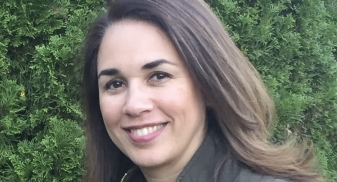Embedded Spring: Rutgers-Puerto Rico: Compounding Disasters and Community Resilience
The Program
This course provides students with historical and current information about populations in Puerto Rico and the country’s unique status as a territory of the United States, and the impact of colonialism on its residents. Students will learn about social work education and practice models in Puerto Rico and the role of social workers within various systems and nonprofit sectors. In addition, lectures, community visits, and agency visits will engage students directly with social work students, community leaders, and practitioners in public and private social services agencies.
It is a 3-credit elective option for LISTA, other MSW students, and graduate students generally. LISTA students will be prioritized. Social Work students must have taken "Diversity and Oppression" as a pre-requisite.
Program Locations
Puerto Rico
San Juan
San Juan is the capital city and most-populous municipality in the Commonwealth of Puerto Rico, an unincorporated territory of the United States. Today, San Juan is Puerto Rico's most important seaport and is the island's financial, cultural, and tourism center.
Academics
This course provides students with historical and current information about populations in Puerto Rico and the country’s unique status as a territory of the United States, and the impact of colonialism on its residents. Students will learn about social work education and practice models in Puerto Rico and the role of social workers within various systems and nonprofit sectors. In addition, lectures, community visits, and agency visits will engage students directly with social work students, community leaders, and practitioners in public and private social services agencies.
Critical to social work practice with Latinos in the states
The course assists students in developing the following competencies:
Core Competency 2: Engage Diversity and Difference in Practice.
Social workers understand how diversity and difference characterize and shape the human experience and are critical to forming identity. The dimensions of diversity are understood as the intersectionality of multiple factors including but not limited to age, class, color, culture, disability and ability, ethnicity, gender, gender identity and expression, immigration status, marital status, political ideology, race, religion/spirituality, sex, sexual orientation, and tribal sovereign status. Social workers understand that, as a consequence of difference, a person’s life experiences may include oppression, poverty, marginalization, and alienation as well as privilege, power, and acclaim. Social workers also understand the forms and mechanisms of oppression and discrimination and recognize the extent to which a culture’s structures and values, including social, economic, political, and cultural exclusions, may oppress, marginalize, alienate, or create privilege and power.
Competency 3: Advance Human Rights and Social, Economic, and Environmental Justice
Social workers understand that every person, regardless of position in society, has fundamental human rights such as freedom, safety, privacy, an adequate standard of living, health care, and education. Social workers understand the global interconnections of oppression and human rights violations. They are knowledgeable about theories of human need, social justice, and strategies to promote social and economic justice and human rights. Social workers understand strategies designed to eliminate oppressive structural barriers to ensure that social goods, rights, and responsibilities are distributed equitably and that civil, political, environmental, economic, social, and cultural human rights are protected.
Excursions
Visits to sites of cultural relevance will be incorporated into the program itinerary to give students an introduction to the unique cultural landscape of Puerto Rico. Planned excursions include El Tibes Indigenous Ceremonial Ground Museum and El Yunque rainforest and internationally renowned nonprofit Casa Pueblo.
- InterAmerican University,
- The Caño Martin Peña (G8 tour)
- Tour of Viejo San Juan
- Casa Pueblo
- El Tibes Indigenous Ceremonial Grounds in Ponce
- El Yunque Rainforest
- Fajardo, Loiza and Caguas
- Various community agencies
To view the 2025 syllabus, click here.
Housing and Meals
Students will stay in double rooms on campus in apartment-style dorms. Students are responsible for airfare and meals. There will be several places for meals close to campus that offer affordable options. Students will also be near a local grocery store.
Financial Information
Program Costs
| All Students | |
|---|---|
| Program Cost | $2,660 |
Program Cost includes:
- Housing
- Excursions
- Administrative Fees
- Emergency Medical Access Abroad
Out-of-Pocket Costs
| Airfare | $900 |
| Meals | $300 |
| Personal Expenses | $100 |
| Total | $1,300.00 |
Out-of-Pocket Cost includes:
The above costs are estimations and represent the known out-of-pocket costs students encounter during their time abroad.
Some of these expenses will be paid for prior to going abroad, such as an airline ticket, while some of these expenses, such as meals and personal expenses, will be paid in-country as part of your daily expenses. As you plan, you will need to budget these costs and spend wisely throughout your time abroad.

